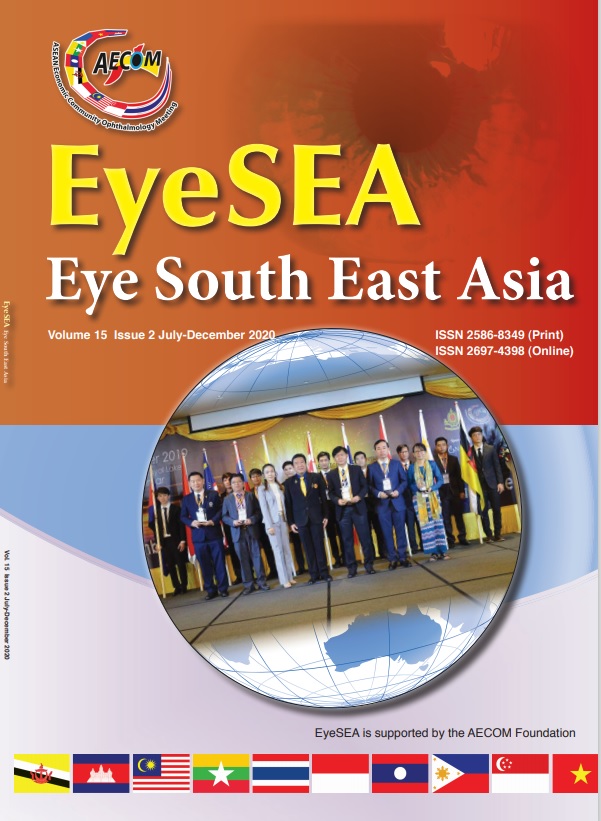Medication Adherence of Patients with Uveitis in Thailand
Main Article Content
Abstract
ABSTRACT
Objective: To evaluate the medication adherence of patients with uveitis and their related factors associated with medication non-adherence.
Methods: A cross-sectional study conducted in uveitis clinic, Thammasat university hospital, Thailand, during June 2018 to January 2019. The questionnaires were collected from the patients.
Results: One hundred and fifty-one patients were enrolled. Forty-five patients (29.8%) demonstrated medication non-adherence. Factors significantly associated with medication non-adherence included lack of knowledge regarding proper medication use (P<0.001), forgetfulness (P<0.001), experiencing side effects from medications (P=0.025), difficulties in travelling to the doctor’s office (P=0.001) and difficulties in using eye drops (P=0.025). However, it was not significantly associated with age (P=0.377), gender (P=0.861), education level (P=0.069), occupation (P=0.191), healthcare coverage (P=0.189), underlying diseases (P=0.727), regular medications (P=0.930), patient’s knowledge of own diagnosis (P=0.283), duration of the disease (P=0.089), number of eye drops (bottles/day, P=0.061), number of oral medications (P=0.328), administration of medications by self/caregiver (P=0.726) and duration between medical visits (P=0.870).
Conclusion: This study showed that 29.8% of patients did not adhere to their uveitis medications. Factors associated with medication non-adherence included lack of knowledge regarding proper medication use, forgetfulness, experiencing side effects from medications, difficulties in travelling to the doctor’s office and difficulties in using eye drops. The most significant factor was forgetfulness.
Keywords: Adherence; Compliance; Medication; Questionnaire; Uveitis


